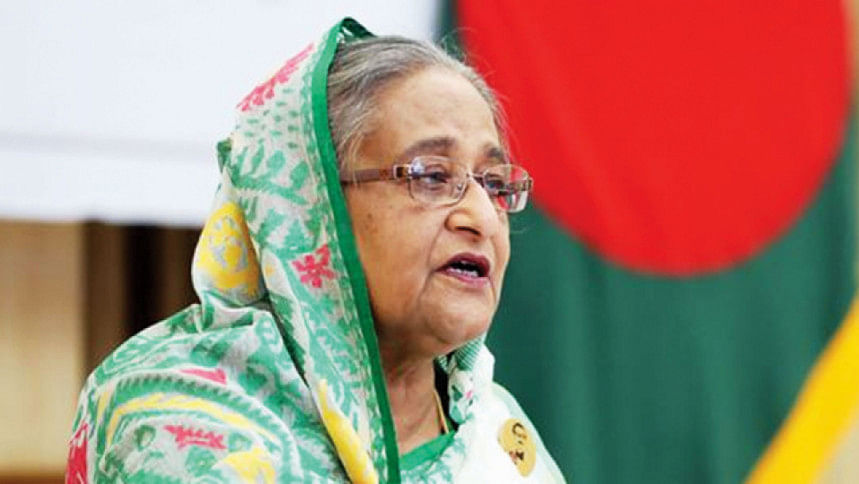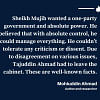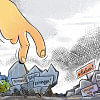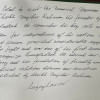Lived in India under a different name for security: Hasina recounts post-1975 horror

In an exclusive interview with ANI that was aired today, Prime Minister Sheikh Hasina said she survived several attempts on her life because god is looking out for her.
"Allah is helping me perhaps, maybe Allah has given me some job to do," she said. The premier also said that after the events of 1975, India was one of the first countries to extend help and she lived in India under a different identity for security purposes, reports our New Delhi correspondent referring to the ANI interview.
"Different name. And it is so painful that you cannot use your own name, own identity... Because of the security purpose they didn't allow us," said Hasina.
Hasina turned visibly emotional at one point during the 36-minute interview with ANI Editor-in-Chief Smita Praksh in Dhaka as she recalled the chain of events of August, 1975 when she left Bangladesh to join her husband in Germany.
"Because my husband was abroad, I used to live in the same house (as her parents). Before leaving for Germany, I last saw my father, mother, my three brothers, two newly-wedded sisters-in-law, everybody was in that house. They came to the airport to see us off. That was the last day, you know," Hasina said recounting the darkest chapters in Bangladesh's history.
Following the 1975 coup, Hasina and her younger sister shifted from Germany to New Delhi and stayed at Pandara Road with her children under an assumed identity trying to escape attention of those who assassinated her father Bangabandhu Sheikh Mujibur Rahman.
Recounting the first time she heard the news of her father's assassination she said, "It was really unbelievable. Unbelievable, that any Bengali could do it. And we didn't know how, what really happened. We only knew there was a coup, and then we heard that my father was assassinated. But we didn't know that all the family members were assassinated," Hasina said, struggling to hold back tears.
"Mrs Indira Gandhi immediately sent information that she wanted to give us security and shelter. We received help, especially from Marshal Tito from Yugoslavia, and Mrs Gandhi. We decided to come back here (Delhi) because we thought that if we go to Delhi, then from there we'll be able to go back to our country. And then we'll be able to know how many members of family are still alive," the Bangladesh Prime Minister said.
She said the then Bangladesh Ambassador to Germany Humayun Rashid Chaudhary was the first person to give an account of her family's massacre at the Dhanmondi-32 house.
"For a few moments I didn't know where I was. I thought about my sister (Sheikh Rehana), she is, actually she's 10 years younger than me. And I wondered how she will take it. It is so difficult for her. Then when we returned to Delhi, they first put us in a house with amped up security because they were also worried about us," recounted Hasina.
Asked if she felt that she too was a possible target, Hasina said the miscreants who had attacked her father had also carried out attacks on houses of other relatives and killed some of her kin.
"…When we returned to Delhi, it was perhaps 24th August and I met Prime Minister Mrs Gandhi. She called us...there we came to know that nobody is alive. She made all the arrangements for us, a job for my husband and the Pandara Road house. The first 2-3 years were so difficult to accept. My son was only four-years-old. My daughter, she's younger, both of them used to cry," Hasina recalled.
"This crime, not only killed my father, it also changed the ideology of our liberation war. Everything just, just one night, everything just changed. And those killers...they were actually still looking for us. So, when we lived in Pandara road; our name was changed," said Hasina.
Replying to another question, she said "I definitely wanted to come back to my country. But taking responsibility of such a big party, I never thought about it."
Hasina spoke at a public meeting in London's York Hall on August 16, 1980 demanding punishment for her father's killers.
"The killers…claimed that yes, they committed this crime and they were very vocal. Because they thought they are very powerful. They had all sorts of immunity," said Hasina.
"On one hand we lost everybody, and on the other I cannot ask for justice. Justice was denied," she said.

 For all latest news, follow The Daily Star's Google News channel.
For all latest news, follow The Daily Star's Google News channel. 









Comments